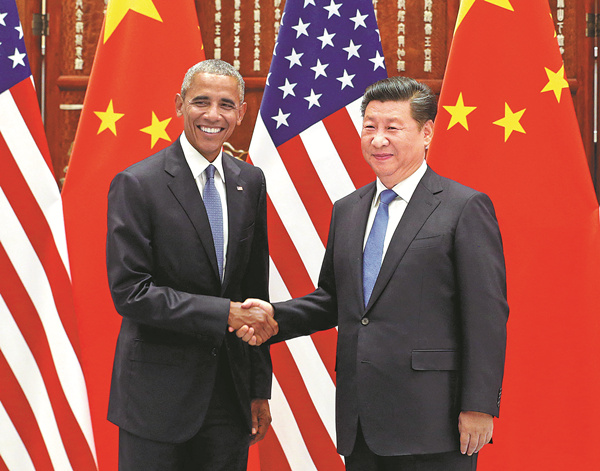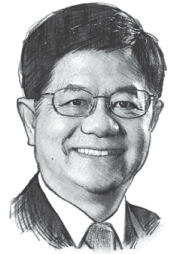Nation can engender win-win changes
Updated: 2016-09-04 10:30
By Bernard Yeung(China Daily)
|
|||||||||
 |
|
President Xi Jinping and US President Barack Obama meet at the West Lake State Guest House in Hangzhou, Zhejiang province, on Saturday. Wu Zhiyi / China Daily |
 |
|
Bernard Yeung |
The dialogue needs to be based on creating understanding and seeking solutions for crucial issues such as forging international cooperation in trade, and recognizing the new global distribution of economic power by enhancing the representation of rising nations of the East in supranational organizations.
This is imperative because Asia has evolved into an interconnected system.
Intra-Asia trade stands at 56 percent of total trade, rising by 77 percent from 2007 to 2014. China is the epicenter of such trade-with 50 percent of its exports going to Asia while 60 percent of its imports are from Asia.
Intra-Asia, cross-border direct investment also has increased substantially, again due to the China factor. Driven by rising wages, China has been actively offshoring labor-intensive work to neighboring countries such as Vietnam, Malaysia and Laos.
Meanwhile, it is in-shoring high value-added skill and technology intensive work. Some 66 percent of China's outward foreign direct investment, or FDI, stays in Asia.
This transformation is further aided by the internet and digitization revolution in almost all countries. For example, the internet directly connects buyers and sellers, empowering them with information that allows for the elimination of intermediaries.
In the banking sector, mobile payments and other financial technologies reduce transaction costs and connect savers and users of funds. These developments level the playing field for a private sector driven efficiency revolution.
A pan-Asian production network that feeds fast-growing regional consumption is developing with China at the center. But other Asian countries and the West still play significant roles. It takes global sourcing of resources and capability to meet the needs of 4.4-plus billion Asians. There is business for everyone and Asia's growth benefits the whole world.
In this context, China can play a critical role in generating a vibrant and well-connected Asia for sustainable and harmonious global growth.
While China does not want to be seen as trying to be a global rule-maker, it can, and should, show poised Eastern style leadership. The approach should be friendly, not confrontational, with the objective to seek understanding and pragmatic win-win solutions. Cornering issues into an impasse will not be beneficial to all. Furthermore, by winning respect based on gentle leadership and its economic position, China can take the lead in enhancing the rising Eastern nations' representation in global affairs.
China can set a good example in the G20 of an Eastern pragmatic Confucius leadership steering G20 dialogue toward seeking balanced win-win solutions for the world.
The author is Dean and Stephen Riady Distinguished Professor of National University of Singapore Business School.
Related Stories
G20 set to stress role of clean energy 2016-09-04 09:11
Experts say G20 crucial for science 2016-09-04 08:14
G20 set to stress role of clean energy 2016-09-04 08:13
G20 must take lead in clarifying green definitions and standards 2016-09-04 08:13
Today's Top News
'All policy tools' to aid growth push
Rocket explodes on launch pad
Mexico contradicts Trump on paying for border wall
British born Chinese face cultural challenge
UK house prices rise after Brexit hit
Brazil's Senate removes President Rousseff from office
EU to push for six priorities at G20 summit
Merkel opens Germany's 17th Confucius Institute
Hot Topics
Lunar probe , China growth forecasts, Emission rules get tougher, China seen through 'colored lens', International board,
Editor's Picks

|

|

|

|

|

|







